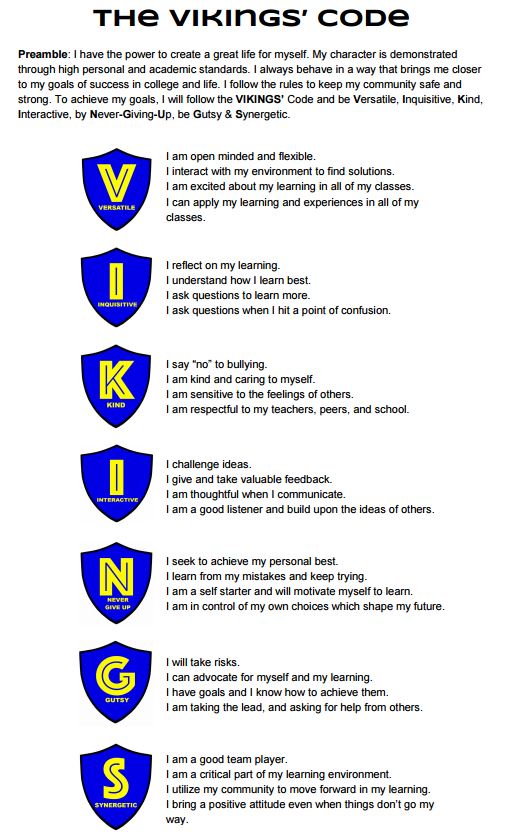Students
Academic Supports Offered:
Jupitergrades
How to access Jupiter Grades for the first time: [link]
How to access grades on Jupiter Grades for Parents:[link]
Video: Student/Parent Login [link]
How to submit work in Jupiter Grades: [link]
Standards Based Grading
Many teachers use standards based grading Standards Based to assess to student learning. Standards Based Grading measures students’ proficiency on well-defined course objectives. Standards can and must be met to earn credit for coursework. Courses use clear and concise standards with rubrics to determine precise levels of mastery. Formative assessments and intervention support is still provided by the teacher/school when implementing Standards Based Grading. Revision, reassessment and dedication allow for every student to achieve in their classes.
Standards Based Grades: For many classes, assignment grades are recorded as a numbers instead of letters. For example in science: 4 = A, 3 = B, 2 = C, 1 = F. Numbers and their meaning vary by teacher – please review your teacher’s syllabus for more information. Teachers using Standards Based Grading will assign traditional grades (A, B, C, D, or F) on progress reports and report cards.
Scholarship Grades: Grading procedures are explained at the beginning of each semester, during Open House and during parent conferences. Teachers send written grading policies home with students during the first week of school.
Citizenship Grades: To determine citizenship grades, teachers evaluate participation, timely completion of assignments, regular/prompt attendance, behavior towards others and attitude in class.
Student Information
Grading
Scholarship and citizenship grades are recorded as A, B, C, D or F. An “A” indicates outstanding achievement, a “C” indicates average work that meets the basic standards and an “F” indicates a failure to meet standards. Remember, day-to-day effort, hard work and studying are the best ways to achieve good grades in school. A 3.3 GPA is your goal to remain on-track for Compact for Success.
Scholarship Grades: Grading procedures are explained at the beginning of each semester, during Back to School Night and during parent conferences. Teachers send written grading policies home with students during the first week of school.
Citizenship Grades: To determine citizenship grades, teachers evaluate participation, timely completion of assignments, regular/prompt attendance, behavior towards others and attitude in class.
Progress Reports/Report Cards
Report cards are issued on an 18-week semester basis and represent final grades for the student’s permanent record. Report cards are mailed home in January and June.
Progress reports are taken home by students after the sixth and twelfth weeks of each semester. These reports indicate the progress students are achieving in academics, behavior and attendance. Under-performing students may require a weekly progress report program and/or attend the Homework Center.
NOTE: Progress Reports indicating a D or F grade serve as official notice to parents that the student is at risk of failure at the semester.
Homework
Homework is an integral part of the academic program and is designed to supplement class instruction and provide independent practice. Homework is usually assigned Monday through Friday according to each teacher’s homework policy. To achieve success, students should spend a minimum of 20 minutes per academic subject each night on homework and review. When no other homework is assigned, students are expected to read to reach the state expectation at the middle school level of one million words read each year!



